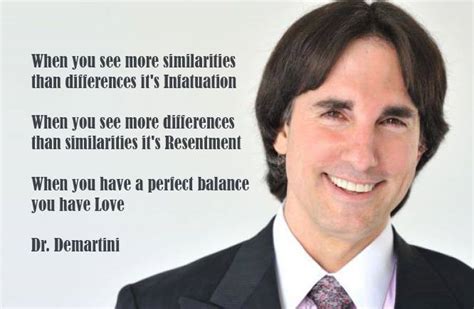A Quote by Gene Simmons
Wealth for its own sake is an empty shell. Wealth that includes making other people's lives better will reward you even more than the beautiful mansion you live in.
Related Quotes
It is good to love God for hope of reward, but it is better to love God for love's sake; and the prayer goes: O Lord, I do not want wealth nor children nor learning. If it be Thy will, I shall go from birth to birth. But grant me this, that I may love thee without the hope of reward 'love' unselfishly for love's sake.
If you have good wealth mentality.... you will generate wealth wherever you go. Even if you lose money temporarily, your wealth mentality will attract it again. If you have a lack mentality, no matter how much you receive or what financial opportunities come your way, wealth will evade you or, if it comes, it won't last.
Nevertheless, the Tenth Commandment-'Thou shalt not covet'-recognizes that making money and owning things could become selfish activities. But it is not the creation of wealth that is wrong, but love of money for its own sake. The spiritual dimension comes in deciding what one does with the wealth. How could we respond to the many calls for help, or invest for the future, or support the wonderful artists or craftsmen whose work also glorifies God, unless we had first worked hard and used our talents to create the necessary wealth?
Between 2013 and 2015, the wealthiest 14 people saw their wealth increase by $157 billion. This is their wealth increase, got it? Not what they are worth. Increase. That $157 billion is more wealth than is owned by the bottom 40 percent of the American people. One family, the Walton family, owns more wealth than the bottom 40 percent.
I think we'll start defining wealth and success differently and develop new approaches to consumption. Things that have always signified wealth and security - home ownership, new cars, luxury goods - have become a burden for many people and will be replaced by more experiential consumption like travel and recreation, self-improvement, and so on. By divesting themselves of certain big-ticket possessions that have been keeping them tied down, people will gain a new freedom to live more meaningful lives. Changes in consumption and lifestyle are key to Great Resets.
The distribution of wealth is even more unequal than that of income. ...The wealthiest 5% of American households held 54% of all wealth reported in the 1989 survey. Their share rose to 61% in 2010 and reached 63% in 2013. By contrast, the rest of those in the top half of the wealth distribution ?families that in 2013 had a net worth between $81,000 and $1.9 million ?held 43% of wealth in 1989 and only 36% in 2013.
Those who have not found their true wealth, which is the radiant joy of Being and the deep, unshakable peace that comes with it, are beggars, even if they have great material wealth. They are looking outside for scraps of pleasure or fulfillment, for validation, security, or love, while they have a treasure within that not only includes all those things but is infinitely greater than anything the world can offer.
It is true that so far as wealth gives time for ideal ends and exercise to ideal energies, wealth is better than poverty and ought to be chosen. But wealth does this in only a portion of the actual cases. Elsewhere the desire to gain wealth and the fear to lose it are our chief breeders of cowardice and propagators of corruption. There must be thousands of conjunctures in which a wealth-bound man must be a slave, whilst a man for whom poverty has no terrors becomes a freeman.



































